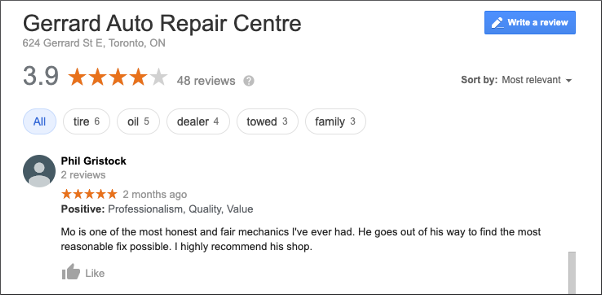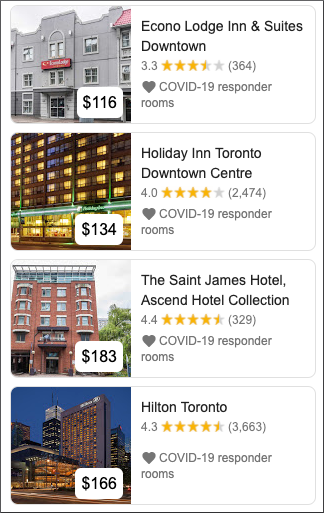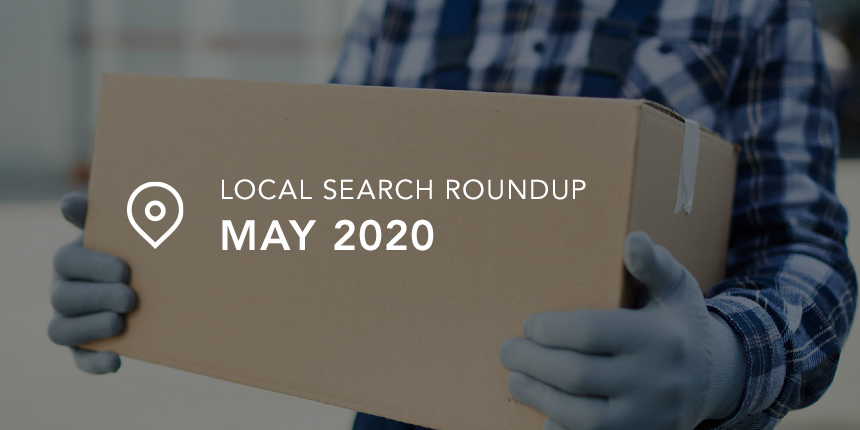Google’s updates are not slowing down. As we grow accustomed to life with COVID-19 and how to do business amid social distancing practices, updates to the local search ecosystem have stopped becoming stopgaps and are now full-fledged long-term changes. To ensure marketers are making the most out of these trying times, it is crucial to keep up with local search news.
Google’s May core algorithm update
Google launched a core algorithm update in the first week of May. While the update did not target any specific industry or Google products, it is expected that most businesses will see fluctuations in their rankings.
This May update is both more generalized and more volatile to business rankings. Since there is nothing specific targeted by the update, standard SEO best practices are the only way to cope with any fluctuations your website may see. If you have experienced a noticeable change in your rankings within the first few weeks of May, the May core algorithm update is likely to be the main contributing factor. Now is the time to review your standard SEO plan, especially if the May fluctuations targeted your business for the worse.
Google reviews and Q&A are reappearing
The onset of COVID-19 had Google scrambling to take down reviews and their Q&A due to the spread of misinformation. Many businesses were being wrongfully blamed for COVID-19 outbreaks and Google had to stifle the use of their products as they became a source of misinformation and outrage. Now that the initial panic has worn off, reviews have returned to nearly all businesses, with Q&A only a few steps behind.
For several weeks genuine reviews were also being taken down, as those reviews were difficult to filter out from the spam. These furloughed reviews are now returning to business profiles. Initially the reinstated reviews did not affect a business’s star rating or total review count but as of late May, the furloughed reviews have fully integrated back into Google My Business (GMB) profiles.
For businesses practicing proper reputation management, they will want to go back into their review history and reply to these delayed reviews. Note that notification methods that may have been in place for new reviews may not have triggered due to the nature of the review delay. Many businesses will need to manually check to see which of their locations received these delayed reviews and will need to reply to them as soon as possible.
Q&A hasn’t returned to all industries, and it has specifically yet to return to health services. As questions about COVID-19 are pressing and answers should be provided by health officials rather than the public, we are not expecting to see Q&A return to the health industry for some time.
Google’s review attributes expand to new categories
Late last fall, Google began to ask users for additional attributes to attach to businesses they reviewed. Depending on the star rating they left, users were given a list of potential positive or negative attributes such as friendly, professional, fast, etc. These review attributes were first introduced to service area businesses such as plumbers and locksmiths. Further expansion was made towards other categories including lawyers, accountants, financial planners, architects, salons, car repair, and dry cleaning. Review attributes are now showing much more broadly and look like they will inevitably spread to all business categories.

When a Google user views the reviews of a business, they will see the attributes attached to both positive and negative reviews. Exactly which attributes are available and chosen for the user to select from is currently unknown. However, all attributes that the user selected become visible in organic search via the business’s profile. These attributes are not yet visible for the same listing within Maps.
With the return of reviews and now updates to the system, we can expect Google to continue to work towards its previous goal of being a primary review source for all businesses. Responding to reviews is a growing factor in ranking on Google—and with the additional features users have in leaving those reviews, customer interaction with a business in this way will undoubtedly also grow as a ranking factor.
Hotels gain a new COVID-19 responder policy attribute
Attributes are a relatively new GMB feature that Google is pushing strongly amid COVID-19. Attributes quickly became vital for restaurants, helping users determine which ones offer dine-in, delivery, or takeout. Google has been expanding these attributes further not only with reviews, but also with special attribute designations for specific business categories.
Hotels already had a number of special GMB features, and can now select an attribute to let customers know if they have a COVID-19 responder policy. This section shows if they have special accommodations or discounts for COVID-19 responders, such as healthcare/medical workers, frontline responders, and essential workers.

Something to note is that this attribute is not a URL, such as with menus or appointment booking. This is only a signifier that such a policy exists with the hotel. Further explanation of the policy will need to be easily found on the hotel’s website, but making this information visible and clear on GMB is very important. It is recommended that all hotels submit this information.
Google adds additional attributes for retailers and health categories
The “in-store shopping” attribute can now be assigned to a retailer’s GMB profile. With COVID-19 causing many stores to have pick-up or delivery only, this new attribute can help consumers understand the specifics on what browsing and navigating the inside of the store looks like for each individual location.
Along with this new attribute being granted to retailers, Google is also testing badges to add to its local inventory ads. A new “curbside pickup” label is being included as an option in the countries where local inventory ads have already launched. This includes Australia, Austria, Brazil, Canada, Denmark, France, Germany, Japan, Netherlands, Norway, Sweden, Switzerland, the UK, and the US.
In addition to the attribute updates for retail, Google can now show if a specific location, pharmacy, etc. is a COVID-19 testing center and what requirements there are to be tested. Google will tell you if the COVID-19 testing center requires appointments, if referrals are required, if testing is available for all patients, and if it is a drive-through or not. All testing centers should have this information clearly labeled. This is especially important for appointment-only centers, as having that attribute clearly shown will prevent unnecessary travel for those unaware of that requirement before visiting the potential testing site.
GMB adds donation and gift card links
Yet another new feature for GMB profiles is the ability for businesses to now directly include donation links. When users access these links, Google has given businesses the opportunity to share a personal message that will inform the customer how these funds will be put to use.
At launch, Google has partnered with PayPal and GoFundMe for donations. For gift cards, businesses can link directly to the relevant page on their website or to their gift card offerings with one of their eligible partners, which includes Square, Toast, Clover, and Vagaro. While Google is not charging merchants or consumers any fees, there may be partner processing fees associated with campaigns.
There are a few criteria which need to be met to quality for the new donation and gift card URLs:
- Businesses must be verified before March 1, 2020.
- Businesses must have a physical storefront.
- The initial country availability is the United States, Canada, United Kingdom, Ireland, Australia, and New Zealand but more are rapidly being added.
COVID-19 Google Posts are overriding other post types
In an unannounced update, Google has begun to prioritize COVID-19 Google Posts over all others. In many cases, if you post a Google Post using the COVID-19 type, it will likely replace any other normal Google Posts on your listing.
For now, businesses will have to choose between COVID-19 posts and regular posts. This will come down to the individual needs of the business as sales, events, and other offers will be of much greater importance to some industries than others. If you are a medical clinic or pharmacy, COVID-19 information will almost always be more relevant to your clients than other information.
Bing is merging business listings and Foursquare no longer accepts service area businesses
Bing is increasingly merging locations with similar names and addresses into a single location online (even if the phone number is different). Bing has advised that for a business to be considered as a valid stand-alone entity, there must be a distinct access point and signage, and these must be visible when the businesses are searched using Streetside view in Maps. If the name and address refer to the same business and location, then they are considered the same entity and will be published as one listing.
Example of two locations that Bing will merge:
Toyota Dealership
112 Anna Dr, Suite A, McComb, MS, US, 39648
18552774735
Toyota Repair Center
112 Anna Dr, Suite A, McComb, MS, US, 39648
18559277473
Foursquare is also removing locations by no longer listing service area businesses that do not have a physical address for customers to visit. This practice is similar to other map-based services like Apple, HERE, and TomTom.
Need help updating and optimizing your local listings? Let’s talk.




